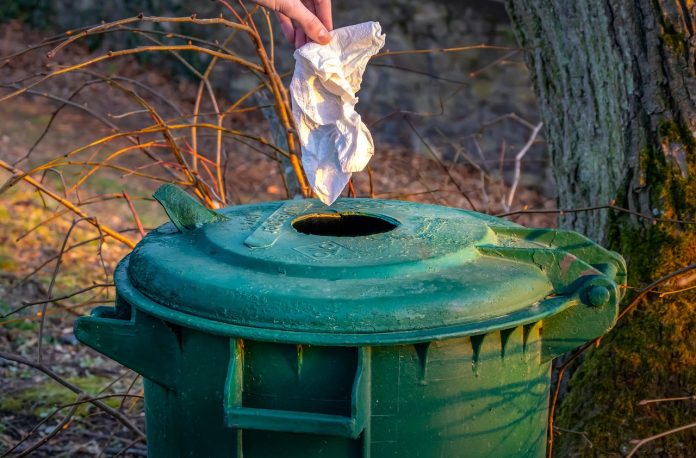By Brett Davis
(The Center Square) – Washington has a robust recycling system.
A December 2023 report found that the state ranks No. 15 in the nation in terms of recycling but at just under 50%, the percentage of successfully recycled materials in the Evergreen State has been essentially stagnant for years.
House Bill 1900 would require manufacturers to label packaging as recyclable only if the products largely can be recycled in the state, as well as increase the amount of recycled content they use to create new packaging products. It would also require producers to register their products with the state Department of Ecology for purposes of achieving a better understanding of products and materials brought into the state for purposes of either recycling, composting or being discarded as waste.
“We’re starting at a point ahead of most states in this country with something on the order of 50% recycling,” Rep. Jake Fey, D-Tacoma, the primary sponsor of HB 1900, told the House Environment & Energy Committee during a Jan. 11 public hearing. “We’ve got a great record. We’ve utilized the existing solid waste management system to accomplish that.”
Fey, concerned about any cost increases that could be passed onto consumers, believes state government needs to fund a needs assessment before implementing such a program. His proposal includes such an assessment to determine the costs associated with boosting Washington’s recycling rate to 60%.
“We have a lot of consumers who struggle with paying their utility bills, and I believe that any change that we go forward [with] needs to provide discounts as we do for electricity, water and other utilities and provide that to people who have struggled to meet their energy bills and other bills,” Fey told the committee.
Brad Lovaas, executive director of the Washington Refuse & Recycling Association, supports HB 1900, characterizing the legislation as the best chance of boosting the state’s recycling rate while maintaining good relationships between government and Washington’s solid waste companies.
“It’s the way we think we ought to do things,” he told The Center Square. “Let’s not put the cart in front of the horse…”
The needs assessment portion of the bill – a data-driven analysis of the current system that would help identify the best opportunities for improvement – caught Lovaas’ attention.
“It seems very practical to us,” he said. “It’s something everybody agrees to.”
Not everyone, however, believes HB 1900 is the best way to hike recycling rates in Washington.
Pamela Clough of Environment Washington came out against HB 1900 at the public hearing before the House Environment & Energy Committee, mentioning a slightly lower recycling rate than Fey referenced.
“This study commissioned by the Legislature last year found that market-driven policies included in House Bill 1900 alone would only increase our recycling rate and outcomes by a small amount over our current statewide rate of 40%,” Clough told the committee.
She said her organization favors legislation that addresses both the supply side and the demand side of the recycling system.
“This bill would not get the job done,” Clough said, “but the Re-WRAP Act – and the Re-WRAP Act combined with a deposit return system – would do it.”
House Bill 2049, the Washington Recycling and Packaging Act, would change who pays for curbside recycling services through “extended producer responsibility programs.” That means companies supplying packaging and paper products would fund the statewide program, as opposed to residents.
House Bill 2144 would create a beverage container recycling program. Supporters claim it works in other states by providing an incentive for people to turn in their cans or collect them from the street.
“We’re proponents of the curbside system,” Lovaas said, explaining he thought HB 2144 would make recycling more burdensome for Washingtonians.
“If you just did a bottle bill alone, it would cost the local jurisdictions money because they have contracts that give them, you know, some of the revenue that comes from the sale of the material,” he observed.
When asked about the chances of HB 1900 ultimately becoming law during the current 60-day session, he answered, “We’re optimistic.”
Brett Davis is the Pacific Northwest Regional Editor for The Center Square. Prior to assuming his current position, he was The Center Square’s Washington state government reporter. His journalism background also includes working for various community newspapers, as well as public policy organizations the Freedom Foundation and Washington Farm Bureau. He has also done work for World Vision and Russell Investments.
Originally published by The Center Square. Republished with permission.
To read more about recycling programs, click here.
To read more about issues with recycling, click here.


























